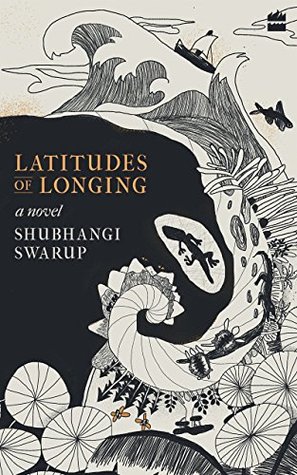More on this book
Community
Kindle Notes & Highlights
‘Standing alone in the face of infinity, it’s not your beliefs but what you have rejected that bothers you.’
It forces them to swim in the solitary world of thoughts, preoccupations and visions.
It is one of those days when you find yourself looking up at the sky, hoping to catch a rainbow.
For hell, like everything else, is built by the domesticated few. The bachelors may keep the world spinning, but it’s the married ones that keep it grounded.
Though she sits in the same room, Girija Prasad often suspects she is constellations apart. In that different time and universe, he wonders if she finds herself alone. But he is hopeful. One day, he too will travel across time to reach the end of Chanda Devi’s gaze.
He’s resigned to the futility of enquiry, for when she chooses to withdraw, only she can bring herself back.
Seeking solitude, only to find in it the value of companionship.
TWENTY-THREE MONTHS AND ten days into their marriage, the Varmas have been together long enough to experience one of the most sacred interactions between a man and a woman. She is now a nagging wife, and he a clueless husband.
Disbelief, it turns out, is belief of its own kind. It is a river that flows against the overbearing currents of time and truth to make the opposite journey. It gathers all the mysteries of the ocean and returns them to their frozen origins. In the form of a glacier, it holds its head high up to look at god hiding behind the mists of heaven.
What is the purpose of belief if even god can’t put the world back the way you worshipped it?
Girija Prasad and Devi feel the deepest form of gratitude and love towards her—they take her for granted.
For the best way to ignore the moment of separation is to deny the silence that precedes it.
‘I love you,’ she adds, in the silence. ‘I love you too, my angel,’ her father replies. It is the first time Girija Prasad has uttered those words. To him, they are the contemporary shorthand for expressing an emotion that old people like him had invested a lifetime of silence in.
This is what death is, he thinks. A moment isolated from everything and everyone else. A moment magnified and distorted beyond comprehension. A moment devoid of all possibility. An ossified moment. Like a shell discarded by a mollusc, the moment resonates with reverberations and echoes. Not life.
The outside is a vulgar caricature of the tender image he had clung on to.
To him, the value of gemstones—the consistency of imperial jade, the malleability of gold, the hardness of diamonds and the vibrant pigeon blood that colours rubies—lies in metaphor. The rocks attain their beauty and hardiness through profound violence. Like the scars on his body, his broken teeth and internal haemorrhages, the gemstones too are evidence of transformations at the core. Purged to the surface from faultlines far below, aren’t they scars and clots from the land’s deepest wounds?
Memory was life reflected in a shattered mirror.
On full moon nights, she was the spirit of an ocean. On moonless ones such as this, she was the ghost of a sea that had curdled.
‘Many writers spend a lifetime writing, yet they suffer like you. When they write, it is about their own life. That is art’s biggest tragedy. We can imagine god, god’s enemies, ideologies to fight over, but we can’t tell a single story of which we are not the centre. That is the root of all the world’s problems, my friend. But you cannot put yourself in someone else’s shoes until you remove your own.’
The mountain air is still and dry. It preserves everything. It preserves the skeletons of extinct beings. It preserves corpses discarded by souls that have moved on to newer lives and lands, but may return one day to reclaim what belonged to them. It also preserves laughter, vibrating long after it was laughed through the valleys and caves.
reality is the worst story ever written.
With the distance and intimacy only time can afford, Apo has found similarities between the sounds of war and the vulgar display of fireworks.
Soon, nostalgia takes over the sadness, making its presence felt as a sweet, delicately spiced aroma.
Compared to all the glorious lives one can lead, the human one is quite a chore.


